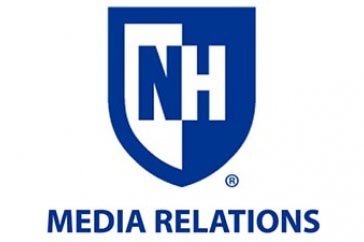UNH Receives Nearly $3 Million to Research Effectiveness of Wilderness Therapy

DURHAM, N.H.— The University of New Hampshire’s Outdoor Behavioral Healthcare Center will receive $2.97 million in grants to conduct a first-of-its-kind randomized study looking at the effectiveness of outdoor behavioral health (OBH), or wilderness therapy, a prescriptive treatment for teens struggling with depression, anxiety and substance use disorders.
“Mental health and substance abuse issues in adolescents have become major societal problems, forcing parents and health providers to look for innovative treatment options that may better suit some teens,” said Michael Gass, professor of outdoor education and director of UNH’s Outdoor Behavioral Healthcare Center. “Our hope with this controlled randomized study is to uncover definitive answers about the benefits of wilderness therapy from a behavioral, social and cost point of view.”
Gass and his team will lead the first-ever clinical trial that will compare the treatment and outcomes for several different groups of youths—those dealing with either anxiety, depression or substance abuse. The researchers will randomize 84 adolescents with half getting treatment by participating in wilderness therapy and the other half receiving cognitive behavioral therapy in their own community, the standard non-pharmaceutical treatment. There will be routine monitoring every two weeks to ensure vigilance, track significant progress and determine key time intervals. Researchers will also take into consideration other factors, like socioeconomics, to see what role they may play in the treatment process.
OBH is a growing, innovative and therapeutic intervention for adolescents having difficulty with emotional, behavioral, relational and substance abuse disorders. It is the prescriptive use of wilderness experiences such as hiking, backcountry travel and climbing by licensed mental health professionals to meet the therapeutic treatment needs of clients. It includes group living and group therapy as well as one-on-one counseling sessions. OBH can be challenging for families to access because most programs are not covered by insurance, creating an enormous cost burden.
The grant, from a collection of family foundations, will be distributed over the next three years. During that time, the team will work with eight of the leading accredited OBH centers in the United States that have all committed resources to this research. They include Elements Wilderness Program, Utah; Anasazi Foundation, Arizona; Open Sky Wilderness Therapy, Colorado; New Vision Wilderness, Oregon, Wisconsin & Georgia; Evoke Cascades, Oregon; Evoke Therapy, Utah; and RedCliff Ascent, Utah.
Other researchers involved include Anita Tucker, professor of social work; Tarkington Newman, assistant professor of social work; Suzanne Graham, associate professor of education; and Semra Aytur, associate producer of health management and policy, all at UNH; and Nick Mian, assistant professor of psychology, UNH-Manchester.
The University of New Hampshire inspires innovation and transforms lives in our state, nation, and world. More than 16,000 students from all 50 states and 71 countries engage with an award-winning faculty in top-ranked programs in business, engineering, law, health and human services, liberal arts and the sciences across more than 200 programs of study. As one of the nation’s highest-performing research universities, UNH partners with NASA, NOAA, NSF and NIH, and receives more than $110 million in competitive external funding every year to further explore and define the frontiers of land, sea and space.
Latest News
-
January 15, 2025
-
January 6, 2025
-
December 12, 2024
-
December 11, 2024
-
November 22, 2024
















































